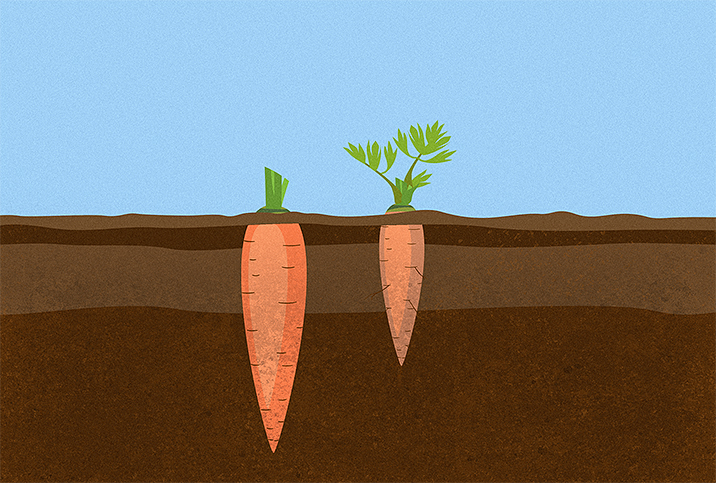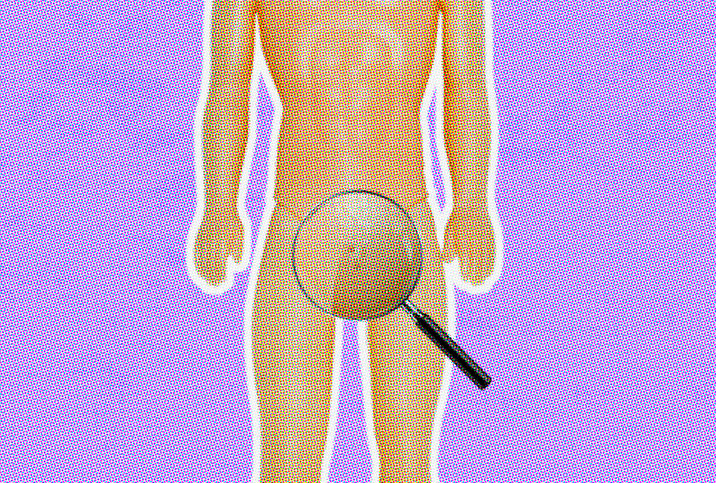Is There an Age Limit for Penis Growth?

When does a man's penis usually stop growing? Why does it stop growing? What are some signs it might not be growing as it should?
These questions have crossed the minds of many men.
Penile growth is regulated by a subtype of testosterone called dihydrotestosterone (DHT) that remains active through puberty and adulthood, according to Jesse Mills, M.D., a urologist and the director of the Men's Clinic at UCLA in Los Angeles.
What is usual growth?
"Most guys are going to achieve their full, adult penile length somewhere before [age] 20," Mills said. "It does grow, and then the receptors that are sensitive to the DHT sensitivity in the penis, they basically start shutting off somewhere in teens to early 20s, and that's it. The 'holy grail' of penile science would be to figure out how to turn those receptors back on in men who are not satisfied with their penile length."
There's genetics to it in terms of the growth characteristics of all tissues, and when they hit that mark or whatever it might be, depending on one's genetics, that's what you get.
Puberty is variable since some males mature at a younger age than others. During puberty, in addition to penile growth, men begin developing facial and body hair and their voice deepens.
"These are all signs of masculinization that occurs as a result of testosterone stimulation," said Laurence Levine, M.D., a urologist at Rush University Medical Center in Chicago. "The range of when that happens is probably somewhere—on the very youngest—around 10 to 14 or 15."
The reason the penis stops growing is probably the same reason your fingers don't continue to grow or you don't end up being 10 feet tall, Levine said.
"There's genetics to it in terms of the growth characteristics of all tissues, and when they hit that mark or whatever it might be, depending on one's genetics, that's what you get," he said. "There's really not much we've been able to do successfully to enhance the size of the penis once a man is fully mature."
Factors that affect penis size
"Has my penis stopped growing?" is a common search phrase, but for many men, a contradictory question arises.
"It's usually the opposite," said Martin Kathrins, M.D., a urologist at Brigham and Women's Hospital in Boston. "'Why is my penis shrinking?' is more of a typical question."
The most common condition Kathrins sees that affects penis size is a buried penis. That's where the pubic fat pad is burying or preventing the erectile chambers from extending out from the skin level. There are surgical repairs for buried penis that rearrange the skin and push the penis farther above the skin level.
"That certainly has to do with weight gain," Kathrins said. "But some men, even with global weight loss, have a lot of difficulty losing the weight, specifically in the suprapubic fat pad area, so it's not their fault. It's just an anatomic predisposition that they develop later in life."
Complaints about a shrinking penis are especially common among prostate cancer survivors. After men undergo a radical prostatectomy—the removal of the prostate gland—they lose some amount of stretched penile length. Many prostate cancer survivors also undergo androgen deprivation therapy (ADT), which lowers the testosterone level in the blood and may cause genital atrophy.
"Most of the complaints have to do with overall body habitus affecting the stretched penile length," Kathrins said. "The amount of penis that's buried underneath skin and fatty tissue is a common complaint. At the point after puberty, as far as length and girth goes, the changes end up being somewhat minimized."
When the penis doesn't grow as it should
In rare cases, the penis does not grow properly. Penile deformities include a congenital curvature condition known as chordee.
Levine recently operated on a young man who had a 65-degree curvature of his penis because of disproportional growth.
"The top grew [and] was more elongated than the bottom," he said. "As a result, when he had an erection, it would curve down 65 degrees."
Another rare condition, a micropenis, is when the man's penis length is less than 3.67 inches when stretched. That is 2.5 standard deviations lower than the average, which is about 5.11 inches based on studies where researchers conducted penis measurements.
Delayed puberty can be another reason the penis doesn't grow as expected. It occurs when a male in his mid- to late teens has a penis smaller than what is normal, his testicles aren't growing and he's not developing pubic hair, Mills said. In those cases, Mills usually suspects there are hormonal factors that need to be investigated and treated.
"I get very few of those men," Mills said. "But I get hundreds of guys who start watching porn when they're 10 years old and figure everyone in porn that has that size penis should be normal. Unfortunately, there's a lot of body dysmorphism that is only getting worse in a generation of kids that were raised with porn on their smartphones."
Body dysmorphic disorder (BDD) is a mental health condition in which someone can't stop thinking about perceived flaws in their appearance. Overcoming the psychological effects of a condition such as body dysmorphism, especially as it relates to penis size or growth, is likely to require help from a therapist. Many such healthcare professionals have added telehealth to their practices, utilizing phone calls and video visits to accommodate more people.
If you want to take the first step and talk to a therapist, finding one can be difficult. Giddy telehealth makes the task easier, providing access to hundreds of healthcare professionals on a single platform. Many have same-day appointments and offer low rates.


















